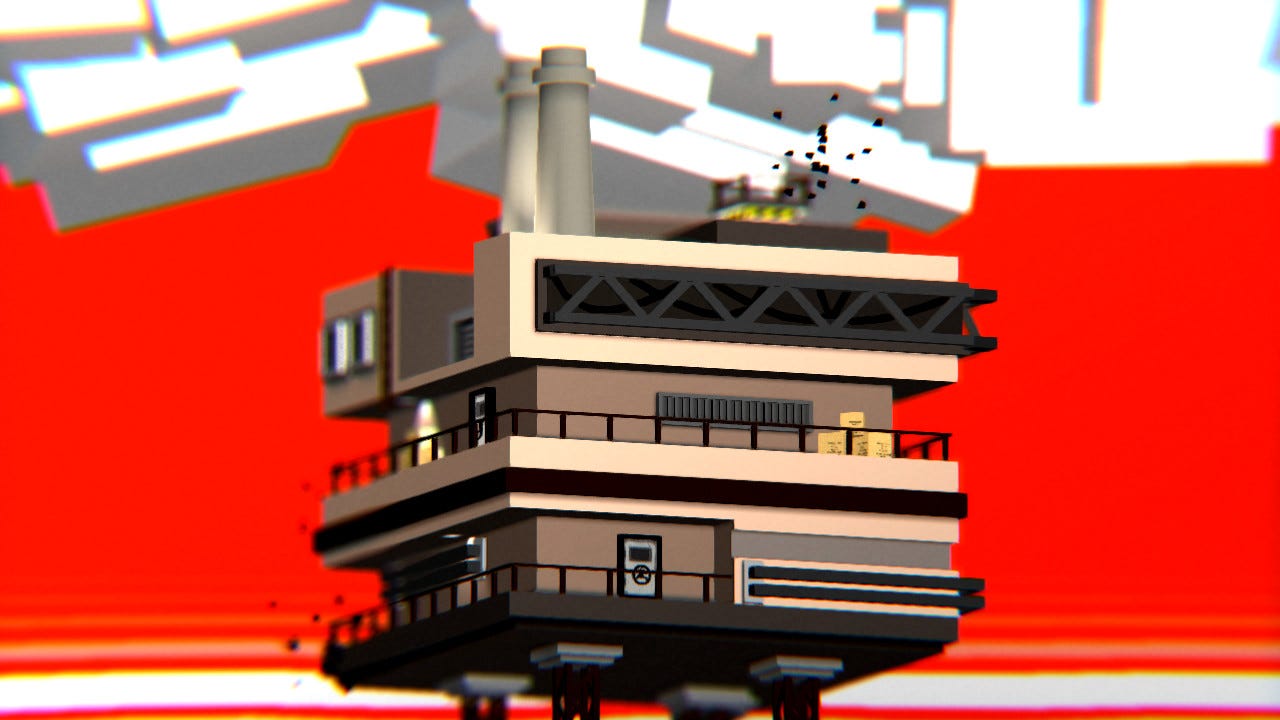Last December, Ubisoft announced it was delisting its MMO racing game The Crew from all digital storefronts but shutting down the servers on March 31, 2024. Weeks after the servers were slated to shut down, Ubisoft began notifying players who owned a copy of The Crew that it was removing it from their Ubisoft accounts.
Though Ubisoft is not the first company to shut down servers for an online-only game, the recent closure of The Crew’s online servers has inspired one individual to push for legal and government intervention to address the ever-growing industry trend. It’s a trend that has sparked even debate in the industry after Microsoft announced the closure of Arkane Studios, the developer behind Redfall. This decision has led to the cancellation of future updates and planned DLC for this online-only game.
Although Redfall’s servers are still operational, its long-term support remains uncertain, as it remains to be seen how long Microsoft will keep the servers up and whether or not it will provide an offline mode once it finally sunsets its support for Redfall.
Aside from the obvious fact that it means that players who spent money on this game feel cheated, there are plenty of stakes for the hundreds of people who poured their creative energy into bringing it to market in the first place. Shutting down and delisting a game becomes more than a surface-level decision; it’s stripping away the creative work of the thousands, possibly millions, of people who played or developed it.
Enter Stop Killing Games.
An initiative created by YouTuber Ross Scott, Stop Killing Games aims to hold publishers accountable by ending the common practice of making games designed to be “completely unplayable” after support ends, particularly MMOs and other online-only games. The initiative itself is a new branch in an even bigger fight to preserve video games for future generations.
Scott’s strategy is simple: file public complaints. Lots of them. After Ubisoft shut down the servers for The Crew, Scott encouraged those upset and angry to file a complaint with France’s Directorate General for Competition, Consumer Affairs and Fraud Prevention (DGCCRF) since Ubisoft is headquartered in France.
“Due to the game’s size and France’s strong consumer protection laws, this represents one of the best opportunities to hold a publisher accountable for this action,” Scott wrote on the official website for Stop Killing Games. “If we are successful in bringing charges against Ubisoft, this can have a ripple effect on the videogames industry to prevent publishers from destroying more games.”
In a statement sent to IGN, a Ubisoft spokesperson told IGN it had “no further comment” regarding The Crew’s shutdown. The spokesperson reiterated that although the news could disappoint players, “it was necessary” for Ubisoft, citing server infrastructure and “licensing constraints.”
The painful limits of online games
Scott’s efforts are an attempt to address a trend that has been going on for years now, but in recent years has only become more acute
Newzoo Senior Market Analyst Michael Wagner says that in the past, it was common for games to lose online support after a certain period, usually when the “player bases move on to other titles.” Still, extra features would keep the game playable, like a single-player campaign, local multiplayer, and the option to set up private servers. However, in recent years, the idea of online games being completely unplayable has become “a fairly new phenomenon,” Wagner explains.
According to Wagner, publishers shut down games because of dwindling player bases and the need for more profitability of upkeep when newer entries are released in existing franchises, with examples including Battlefield and Call of Duty. Wagner explains how older games could threaten the newer games’ ability to turn a profit. “Players may continue with older iterations but may not spend within the game the new game. Removing functionality, in theory, means increased revenues for the new title.”
Liam Deane, principal analyst at Omdia, shares similar sentiments, noting “almost all online-only games have a finite lifespan.” While there are a few rare exceptions, most notably Blizzard Entertainment’s World of Warcraft, Deane reiterates Wagner’s comments on player bases dwindling after a few years as a main reason for publishers shutting down servers.
“Almost all online-only games have a finite lifespan.”
“Until the mid-2000s or so online games typically allowed players to host private servers,” Deane explained. “But these days, the publisher usually shoulders the cost of maintaining the game servers. At some point, this is a cost which they are going to want to stop paying once a game’s player base drops below a certain level.”
With an increase in live service games and in-game purchases becoming a big source of revenue, the worrying trend of online-only games will continue for the foreseeable future. Deane explains that “across the entire industry,” 54% of revenue comes from microtransactions or in-game purchases, according to his research. The proportion is “obviously even higher” for live service games, where it’s common to have a surplus of microtransactions or in-game items purchasable for players.
When the player base dries up, so does the revenue, and with it, the chances of a game’s survival.
Nevertheless, the games industry is industry placing more and more emphasis on multiplayer games, particularly live service titles, such as Fortnite, Palworld, and Helldivers 2. These projects not only rely on a player base consistently coming back to play the game, but also on players being online to access this content. When they shut down, they take their communities with them. Friday the 13th, which will have its servers permanently turned off on December 31, 2024, is just one game suffering this fate.
Scott explains that while licensing agreements can prevent companies from selling additional companies of a game once the license expires, it does “not prevent existing buyers from continuing to use the game they have already paid for.”
Yet, the ownership of some games remains a gray area, especially in the United States, where legal precedent has significantly stripped consumers of their rights. The most significant legal case impacting this is ProCD, Inc. v. Zeidenbger, which reworked U.S. Contract Law, allowing the courts to defer to End User License Agreements. Essentially, the case meant that these agreements allow publishers to be absolved of any accountability and obligation owed to consumers who purchased a product and assert authority over when their online-only games become unplayable once support ends.
“If you bought a game, if you made a game, if you love a game, technology shouldn’t get in the way.
The Electronic Frontier Foundation (EFF) has led the fight for ownership rights in the since 1990, with the agency mainly focusing on advocating for creators, technologists, and technology users’ digital rights. As Cory Doctorow, EFF Special Advisor, emphasizes, “If you bought a game, if you made a game, if you love a game, technology shouldn’t get in the way of that game’s ongoing existence. Instead, technology should preserve that game for players who love it today, for the people who are proud of making it, for players who come later, and for games makers of the future.”
However, the challenge is wider than the United States. In countries like Canada and the UK, there is little precedent preventing companies from revoking a purchase post-sale. In contrast, the EU and Australia need help getting a governmental examination of the issue. One common global challenge is lobbying groups’ influence, particularly in the gaming industry, which may work to maintain the status quo of an uneven balance of power between game companies and consumers.
A domino effect
Nevertheless, despite the varying degrees of laws influencing consumer rights worldwide, Scott explains that this proposed domino effect of filing complaints to the DGCCRF would still have a worldwide impact. For example, in 2014, when the Australian Competition and Consumer Commission sued Valve for not providing customers an option to refund games on Steam, the company had no choice but to modify its policy to allow refunds on Steam in Australia and other countries like the United States.
Ultimately, Scott and Doctorow encourage individuals to advocate for the change they want. They encourage fans to file complaints and force governments to examine the company’s behavior and practices. In the meantime, Scott’s initiative is gaining momentum in raising awareness and urging players to defend their rights and challenge this frustrating trend dictated by publishers.
“I think by taking the customer’s money, that creates an obligation for publishers to give customers a reasonable expectation to run the game in some fashion,” Scott says, “even after support ends.”
Taylor is a Reporter at IGN. You can follow her on Twitter @TayNixster.


